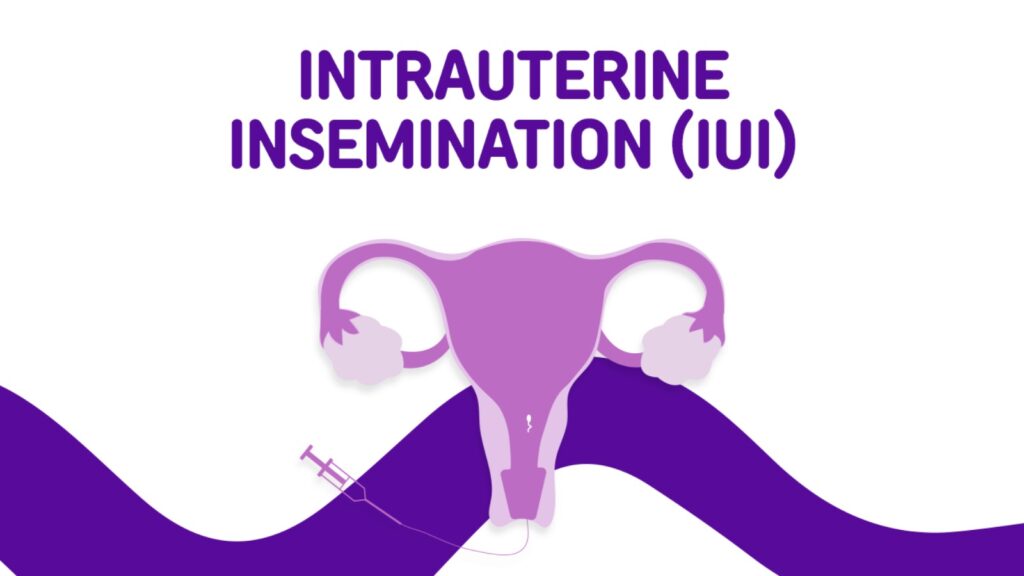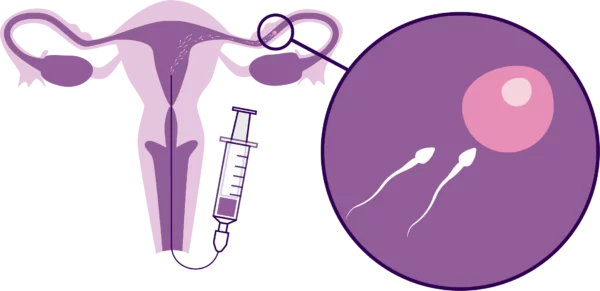PROMOTING FEMALE HEALTH AT EVERY STAGE
IVF (In Vitro Fertilization)
IVF (in vitro fertilization) is a type of fertility treatment where eggs are combined with sperm outside of your body in a lab. It’s a method used by people who need help achieving pregnancy. IVF involves many complex steps and is an effective form of assisted reproductive technology (ART).
A fertility procedure called intrauterine insemination (IUI) involves injecting sperm right into the uterus during ovulation. For couples experiencing infertility problems because of particular cervical causes, unexplained infertility, or male factor infertility, this surgery is frequently advised.


What is IVF?
In vitro fertilization (IVF) is a type of assisted reproductive technology (ART) where sperm and an egg are fertilized outside of the human body. IVF is a complex process that involves retrieving eggs from ovaries and manually combining them with sperm in a lab for fertilization. Several days after fertilization, the fertilized egg (now called an embryo) is placed inside a uterus. Pregnancy occurs when this embryo implants itself into the uterine wall.
- Why is IVF performed?
People choose IVF for many reasons, including infertility issues or when one partner has an existing health condition. Some people will try IVF after other fertility methods have failed or if they’re at an advanced maternal age. IVF is also a reproductive option for same-sex couples or people who wish to have a baby without a partner.
IVF is an option if you or your partner has:
Blocked or damaged fallopian tubes.
Endometriosis.
Low sperm count or other sperm impairments.
Polycystic ovary syndrome (PCOS) or other ovarian conditions.
Uterine fibroids.
Problems with your uterus.
Risk of passing on a genetic disease or disorder.
Unexplained infertility.
Are using an egg donor or a gestational surrogate?
- What can you expect after IVF treatment?
There are some mild symptoms that you can experience after embryo transfer:
Mild bloating and cramping.
Breast tenderness from high estrogen levels.
Spotting. Constipation.
Many people will return to normal activities right after their egg retrieval procedure.
However, you shouldn’t drive for 24 hours after having anesthesia. Around nine to 14 days after the embryos are transferred, you’ll return to the clinic for a pregnancy test using a blood sample.
- Risks / Benefits What are the risks of IVF?
There are several risks associated with IVF treatment:
Multiple births: A pregnancy with multiple babies carries a higher risk of premature labor.
Premature delivery: You may have a slightly higher risk of your baby being born early or at a lower birth weight.
Miscarriage: The rate of miscarriage is about the same as pregnancies from natural conception.
Ectopic pregnancy: This is a condition where your fertilized egg implants outside of your uterus.
Complications during egg retrieval: Bleeding, infection and damage to your bladder, bowel or reproductive organs during the egg retrieval process.
Ovarian hyperstimulation syndrome (OHSS): A rare condition that causes abdominal pain, nausea, vomiting, diarrhea, rapid weight gain, bloating, shortness of breath and inability to urinate.
What are the most common side effects of IVF?
Some experience side effects from the fertility medications used during the ovulation stimulation phase of IVF. These include:
Nausea and vomiting.
Hot flashes.
Headaches.
Enlargement of their ovaries.
Abdominal pain.
Bruising from IVF injections.
After the transfer of your embryo, you should be able to resume normal activities. Your ovaries will be enlarged, and some discomfort may occur. Common side effects after embryo transfer are:
Constipation.
Bloating.
Cramping.
Breast tenderness (from high estrogen).
Spotting.
Frequently Asked Questions
What are the do's and don'ts of IVF?
Avoid processed foods, limit your sugar, eat good carbohydrates, add in oily fish twice a week, don’t neglect proteins, take a daily multivitamin with folic acid. Sexual Intercourse: It is recommended to avoid sexual intercourse until you get your pregnancy test results.
